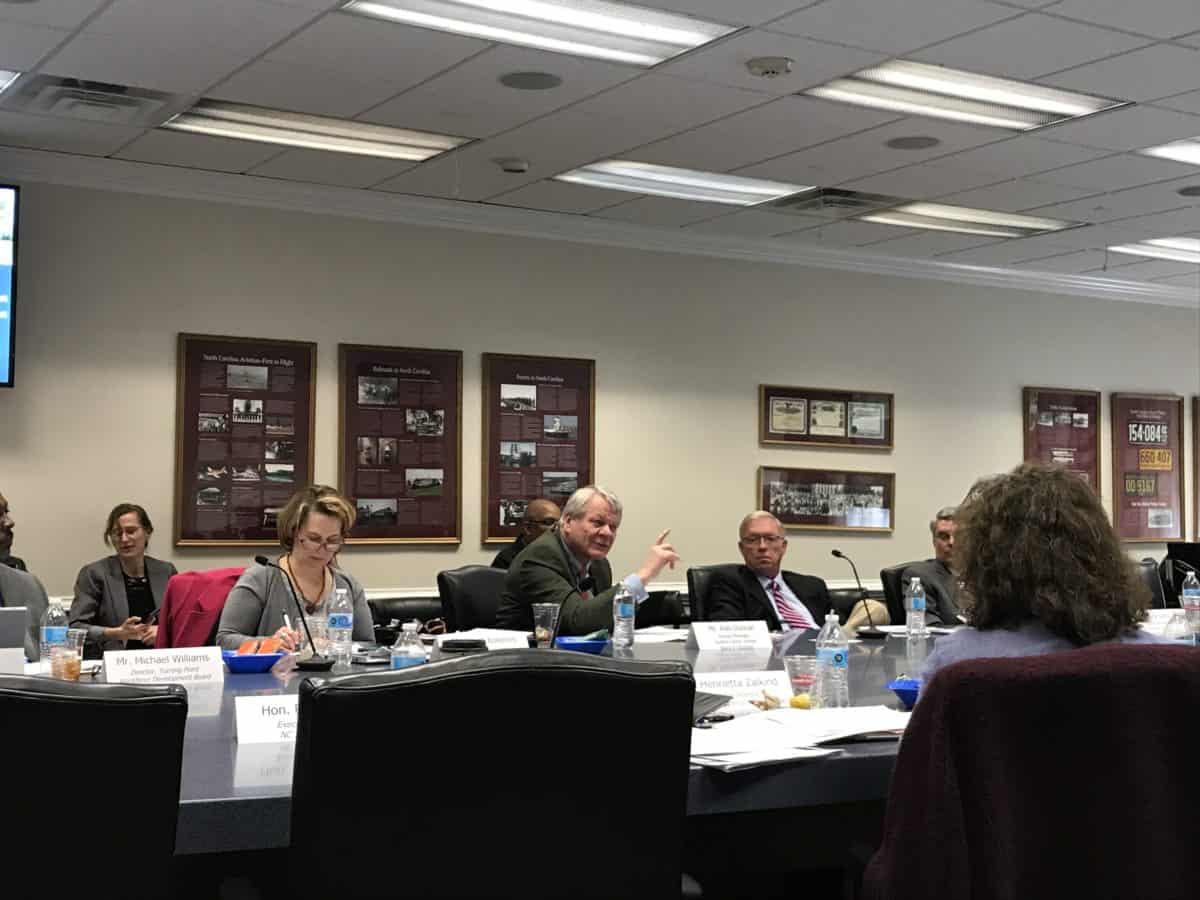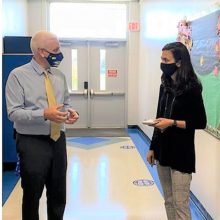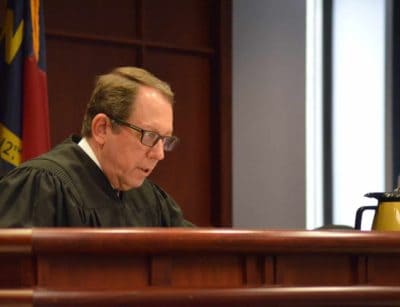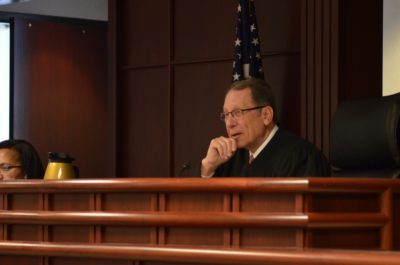

On Thursday, the Governor’s Commission on Access to Sound Basic Education unanimously voted to adopt its report — which is different than the WestEd Leandro report — on how the state can ensure every child has access to a sound, basic education as laid out in the decades-long Leandro case. The report includes recommendations across a variety of subject areas including finance, teachers, principals, early childhood, and assessment and accountability.
Gov. Roy Cooper created the commission through executive order in 2017. It consists of cross-sector stakeholders who have met regularly over the last two years to hear from experts and practitioners, ask questions, and determine what it will take for the state to meet the Leandro tenets, which are:
- “A ‘competent, certified, well-trained teacher who is teaching the standard course of study’ in every classroom;
- A ‘well-trained competent principal with the leadership skills and ability to hire and retain competent, certified and well-trained teachers in every school; and
- The ‘resources necessary to support the effective instructional program’ in every school ‘so that the educational needs of all children, including at-risk children, to have an equal opportunity to obtain a sound basic education, can be met.’”
During its last meeting in October 2019, the commission honed its set of recommendations. Following today’s vote, those draft recommendations will be turned into a final report.
You can watch a full recording of Thursday’s meeting below.
WestEd discusses report publicly for first time
Around the time the governor’s commission was created in 2017, WestEd was appointed as an independent consultant in the Leandro court case and was charged with conducting an independent study of how the state can meet the Leandro tenants. In December 2019, WestEd’s report was released publicly. Then, on Tuesday, Judge David Lee signed a consent order that lays out a plan of action for the state to meet the mandates of the Leandro case.
Thursday’s commission meeting began with a presentation about WestEd’s report. Two WestEd representatives, Susan Mundry and Jason Willis, joined the meeting via video conference to discuss the report’s findings and recommendations. Glenn Kleiman, a professor at N.C. State and senior faculty fellow at the Friday Institute for Educational Innovation, also presented during the session.
Mundry began by providing a high-level overview of WestEd’s report, including a discussion of the eight critical needs areas it identifies and which stakeholders were engaged in the process of creating the report. Mundry’s presentation on these topics is below.
Then, the commission heard specific presentations on WestEd’s findings related to finance, teacher and school leaders, early childhood education, and student assessment and accountability systems. There are consistent similarities throughout WestEd’s report and the commission’s recommendations, which were highlighted during these presentations.
You can find those presentations in full below, with the information on early childhood education and assessments combined in the third presentation.
The finance presentation lays out the 11 findings and three recommendations included in the financial portion of WestEd’s report. Willis said that the biggest finding in the financial report concerns inadequate funding to meet student needs. He added that investing more dollars in the current system would not be likely to achieve the Leandro tenets because the architecture of the system doesn’t allow resources to reach the schools and students with the greatest needs.
After Willis’ presentation, Leslie Winner, a commission member and former state senator, asked clarifying questions about which of the funds laid out in WestEd’s report were one-time costs and which were recurring costs.
“It seems like we in North Carolina who think about education budgets are used to thinking about them in recurring and non-recurring costs. And if someone could translate this into non-recurring costs and recurring costs, that would be enormously helpful in understanding how much this is really going to add up to costing,” said Winner.
Winner added that the combination of non-recurring and recurring costs into one sum, as they are in WestEd’s report, does not make sense in North Carolina’s context. Commission members then discussed the importance of ensuring that WestEd’s funding recommendations are translated into financial terms that would be easily understood by North Carolina-based education stakeholders.
“We’ve got to make sure that … for the materials we are using, that it has been translated into the common vernacular that we are all used to, including, by the way, those who have the authority to make decisions about whether this money and how much is going to be spent. That is the language that we all use, and particularly the legislature and those in the executive branch,” said Brad Wilson, chair of the commission. “And we’ve got to get this right.”
In the presentation on teachers and school leaders, Kleiman discussed areas of alignment and difference between WestEd’s report and the commission’s recommendations, noting that there is strong alignment between the two.
One area of alignment is that both recommend expanding the North Carolina Teaching Fellows Program from the current 200 members to at least 1,000 within three to four years. Winner expressed concern that this recommendation doesn’t take into consideration the increase in capacity that would need to be built within education preparation programs to support the increase in students coming through their doors.
In the final presentation, Mundry discussed areas of alignment and differences between WestEd’s report and the commission’s recommendations on early childhood education and student assessment and accountability systems.
The commission’s recommendations
Following a lunch break, Geoff Coltrane, senior education advisor for the Office of the Governor, updated the commission on Tuesday’s consent order, saying that for the first time in the history of the case, both parties are in agreement that the state is not meeting its constitutional mandate to provide a sound basic education.
“That’s a big deal and re-positions all of us in North Carolina on delivering on that constitutional mandate and promise,” said Wilson.
The judge set a deadline of March 30 when the parties in the case must come back with short-term action plans for what the state should undertake in 2020. In roughly six months, he will receive a report on the middle-term plan. And in about nine months, he will receive a report on a long-term plan. When he receives the plans, he can hold hearings to gather more information or simply sign off on consent orders that will allow the state to get to work.
Alan Duncan, a commission member and vice chair of the State Board of Education, said Judge Lee emphasized the importance of legislators being involved in the process and the importance of having a way to monitor progress towards the Leandro mandates. Coltrane added that the State Board of Education sent out a request to education stakeholders across the state asking for their feedback on WestEd’s report. The Board will be collecting that feedback and incorporating it into its ongoing process.
The commission then transitioned to a discussion of its own recommendations.
“I think that timing is everything right now, and I think the report this morning … shows pretty clear and direct alignment on all the big stuff and on most of the small stuff,” said Rick Glazier, a commission member and executive director of the North Carolina Justice Center. “I don’t think … any more wordsmithing is going to get us any further. But I do think it’s symbolic and important that we adopt our report and begin the process of coordination.”
Glazier then made a motion to formally adopt the commission’s report as drafted with the ability of Wilson and Coltrane to format and make corrections as needed for a final draft. The commission voted unanimously to adopt its report.
In the final session of the meeting, commission members discussed which of their recommendations should be included in the initial action steps that are due to Judge Lee. They worked from a draft list of initial recommendations laid out next to WestEd’s Phase 1 actions, which is embedded below.
Wilson emphasized the importance of “right-sizing” the recommendations that end up in the short-term action plan.
“Think about what a judge may or may not put in an order to accomplish in 2020,” said Wilson, adding that the commission should make the list “as long as necessary and no more, including: What does it take to hit that sweet spot where what you do propose will get meaningful and serious time and attention and deliberation?”
Coltrane is synthesizing what commission members discussed into a final list of their short-term recommendations. Wilson added that some prioritization of that list might be necessary. Upon conclusion of the meeting, Wilson said the commission will likely meet again but he is not sure when that will be.




